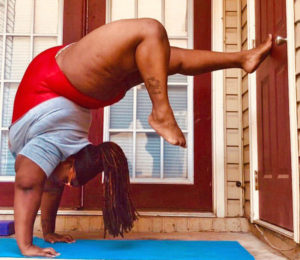“I thought it was your night to cook dinner” you gnarl, frustrated that popcorn seems to be dinner. “Just let me watch this next episode,” he says for the eleventh time.
Do you blow your stack? Probably. And maybe the popcorn too.
Fighting is normal. Everyone argues. But how you do it can make — or break — your relationship. Check out these 8 tips to help you argue more productively.
1) Take a Time Out
It’s easy to overreact when we are upset. Consequently, what may be a minor conflict escalates into a sh*# show. Oops.
Hold up, friend. Take a timeout to refocus. If you’re too frustrated to argue productively, step away from the madness. Take an hour or two to do something calming. Go for a walk or work on a project. Come back to the issue when your mind is in a better place.
2) Schedule a Time to Talk
Arguing escalates when partners are put on the spot. Instead of reacting in an instant, schedule a time to talk. This gives both parties a chance to reflect on what needs to be discussed.
If it’s helpful to you, write down your talking points. And be sure to give your partner a chance to share their points, too. If you need to, treat it like a business meeting with a set amount of time in which you discuss.
3) Take Ownership of Your Concerns
Constructive arguing is all about avoiding the blame game. Try to use “I feel” statements. This keeps blaming language from arising. So, rather than saying “you never” or “you always,” say: “I feel frustrated when….” This shows that you own your feelings as opposed to throwing out accusations that will make conflict worse.
In addition, ownership of your feelings is empowering. You’re a strong woman. Even in conflict.
4) Listen
There’s nothing more frustrating than a partner who talks but doesn’t listen. Arguments are a two-way street. Take the time to hear what your partner is saying.
Sure, you may be very angry with your partner. However, your partner may also be very angry with you. At the end of the day, you both want to be heard.
5) Be Solution-Oriented
Rather than focusing on the he-said-she-said, focus on the end goal. Your goal is conflict resolution and a better understanding of one another’s views and concerns.
Identify the place you’re both trying to get to. What is blocking the path? What’s the solution to that issue? Taking the time to identify this will set you both on a more clear path to conflict resolution.
6) Watch Your Language
Many couples inflate arguments into yelling, door slamming and many other unproductive patterns. Be mindful of the language you use. Don’t curse. Don’t yell. Take turns talking and listening. After all, it’s hard to take harmful words back.
7) Be Empathetic
Always try to have empathy for your partner’s feelings. It’s not about being right, rather being understood. You’re two different people. And you may see things in two different ways. Try to understand where your partner is coming from.
Empathetic listening is all about trying to feel and hear conflict from your partner’s point of view. In addition, try not to make demands. Making requests can go a long way in a getting a problem solved.
8) End Your Chat with Love
If you’re on an “I love you” basis, consider ending your argument with just that. “I’m angry, but I love you.” Yes, you’re angry. But you still love each other, right? That’s the important thing. Don’t be too proud to bend over backwards to let your partner know that they are still very, very loved.
Do you have tips for productive arguing? Share them here.
































